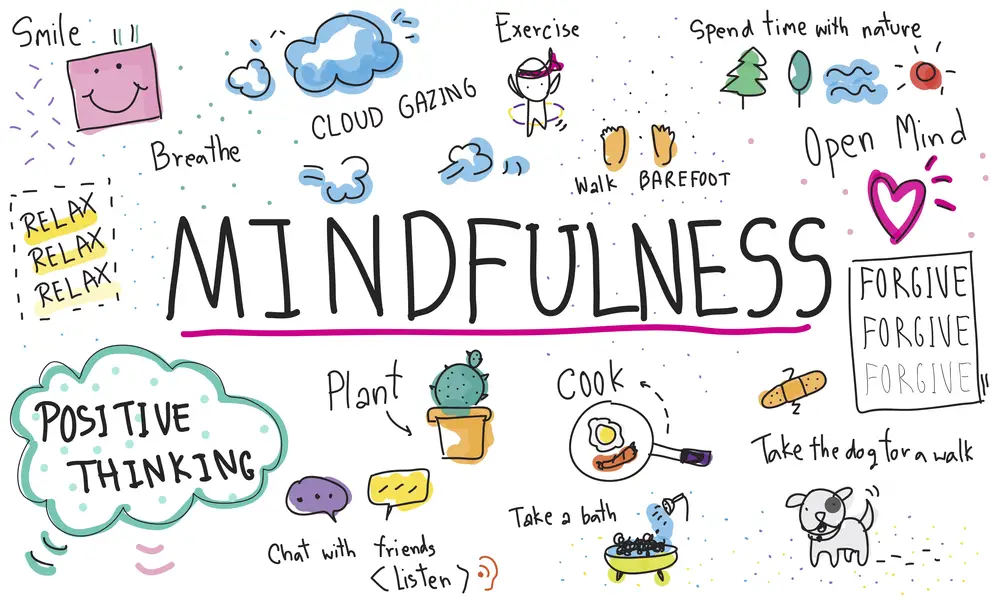“I Don’t Know What To Do With My Life”: 30 Expert Tips to Discover Your Path
“I Don’t Know What To Do With My Life”: 30 Expert Tips to Discover Your Path

One of life’s most gut-wrenching but shared experiences is feeling stuck and unsure of what to do with your life. Many of us go through different life phases, questioning our paths and seeking direction. To embark on your journey of discovering what to do with your life, begin by exploring your interests and passions. Become more familiar with your authentic self.
Some of what this blog discusses may seem small, and other invitations to explore yourself seem like significant steps. It’s okay to take a breath and recognize, within yourself, that it’s those moments we sense discomfort, and we should be curious and lean into it. By taking small steps to try new things, we can help you gain clarity. This could involve hobbies, volunteering, or taking local college or trade school classes. Life is full of opportunities to learn and grow, so be open to change and stay flexible as you navigate uncertainty and discomfort.
Remember to stay patient, kind to yourself, and persistent in your journey. Did I mention to stay kind to yourself? Finding your path can take time, and making mistakes is okay. Take every experience as a moment of growth and self-discovery. Keep exploring, and gradually, you’ll discover what brings you fulfillment and purpose.
My path led me down the road of serving those stricken with grief. I spent a significant chapter of my life as a funeral director and enjoyed most of it. In my journey as a funeral director, I recognized my true passion was building connections with those faced with loss. I knew it was time to take another path and return to school to become a therapist. My advice is to listen to your gut and be willing to make transitions when the universe nudges you in an unknown direction.
“I Don’t Know What To Do With My Life”: 30 Expert Tips

Self-Assessment
Self-assessment is crucial in figuring out what to do with your life. Check in with yourself and focus on your interests, strengths, and weaknesses. You can gain great insight into what paths may be fulfilling and viable for you. My personal favorite is the practice of mindful journaling. Spend a few minutes daily writing about your experiences, thoughts, and feelings. Reflect on those moments when you felt strong, capable, and successful, as well as when you faced challenges or felt weak. This will help you identify patterns and areas to explore in your journey.
Identifying Interests
What do you enjoy? Take note of activities that make you feel excited or deeply engaged. Our enthusiasm for interest can change occasionally but focus on what you have enjoyed. Whether painting, writing, or coding, these interests can guide you. Be more curious about your interests and determine what you appreciate about them. Is it the sense of creativity, accomplishment, or the excitement of the challenge it brings you?
Try new things. Attend something new like workshops, join local clubs, and take on small projects. If you like cooking, you might take a culinary class to explore your interest. Try talking to friends or family to gain more perspective. Ask them what they think you enjoy most. Sometimes, their perspectives can be eye-opening, shedding some light on hobbies you have never considered as potential career paths.
Recognizing Strengths
Recognizing your strengths not only allows you to explore them but also opens a window to self-love. Acknowledging your strengths can steer you toward a path where you will likely excel. Make a list of skills in which you feel confident. This could be anything from problem-solving, good communication, or making people feel seen.
I mentioned it before but want to ask for an additional perspective. Consider seeking feedback from teachers, mentors, or colleagues. They can offer insights into your strengths. Your strengths can grow over time, and regularly updating your list after receiving some feedback can help you stay aware of your evolving abilities.
Could you take it to the internet? Tools like strength assessments or personality tests can also be helpful. Websites like Myers-Briggs and StrengthsFinder can provide detailed reports on where your strengths lie, helping you in your self-assessment process.
Understanding Weaknesses
This next part may be difficult, but let’s take a moment to recognize areas of growth while being kind and offering self-compassion. Knowing your weaknesses is as helpful as knowing your strengths. Identifying areas where you struggle helps you plan better. It can be beneficial to write down specific instances where you faced challenges.
An underlying theme here is to engage others in your journey. Receiving constructive criticism from peers or supervisors can be enlightening. Be open and receptive, and ask, ‘What area do you think I can improve?’ Their feedback can pinpoint areas you might have yet to consider weaknesses.
Once you identify these areas, consider ways to improve or manage them. My example is my fear of public speaking. I wouldn’t say I like it and have had to lean into the discomfort. At one point, I joined a public speaking group to help overcome this fear. Recognizing and addressing deficiencies enables you to set realistic goals and expectations.
Exploring Life Goals
Two essential parts of understanding life goals are what you want soon and in the long run. It’s about ensuring that your goals reflect what’s truly important to you.
Short-Term Objectives
We set to achieve short-term goals soon, typically within a few days, weeks, or months. These may include learning a new skill, saving money, or starting a new hobby. Setting specific, achievable, and time-bound goals can help keep you motivated. For example, if you want to be in better physical health, you could start with a goal like exercising for 30 minutes daily. Or, if you’re going to become more organized, set a goal to declutter for 15 minutes each evening. Achieving these smaller goals can help build confidence.

Long-Term Ambitions
On the other hand, we have long-term goals that take years to achieve. These goals include career aspirations, possible long-term travel plans, or personal growth milestones. These goals require consistent effort and persistence. Keep in mind these are in your sights but down the road a bit. This is where you want to be in five or ten years.
Consider your career; you should aim for a promotion or start your own business. Goals like earning a degree or learning a new language might be critical targets for personal growth. Regularly revisiting and adjusting your plans ensures they remain relevant.
Alignment With Personal Values
Aligning goals with personal values helps ensure that your actions reflect what matters most to you. Your core values are the guiding principles of your decision-making. Values can relate to family, career, education, or personal well-being. Goals that reflect these values are more fulfilling.
Here are a few examples: if you value health, you might spotlight regular exercise and a nutritious diet. If family is important, your goals might focus on spending quality time with loved ones. Identifying and prioritizing these values can make goal setting more meaningful and aligned with your true self. Some great tools like vision boards or journaling can be used to clarify what values are most important to you.
Career Exploration
Exploring potential careers involves understanding the job market and leveraging networking opportunities. Gathering accurate information about desirable industries and connecting with professionals already working in those fields is also important. When I was curious about funeral service, I visited with funeral homeowners and staff. After that, I toured the college. I had gathered vital information to help me decide to move in a direction I felt comfortable with.
Job Market Research
Researching the job market helps identify which careers are in demand. Part of this is looking at reliable data on employment trends, salary ranges, and job growth predictions. Several websites can be found by running a search that can help you gain practical insight into various career fields. You can also check out industry reports and follow news in areas of interest to help deepen your insight into future job prospects.
Analyzing job boards and company websites can help identify the skills and qualifications most desired. Check out the local college and trade school. Often, they have resources to help navigate these decisions, making them valuable places to visit.
Networking Opportunities
Networking opens doors to career possibilities through connections and conversations. Engaging with professionals in desired industries can provide firsthand insights and advice. Attending industry conferences, webinars, and meetups are great ways to start building a network.
Platforms like LinkedIn or other social media platforms can further expand professional connections. One key piece for me in my early decision-making was job shadowing. This offered me practical understanding and built connections with professionals in the field. Networking should be approached with patience and genuine interest, fostering relationships that can lead to new opportunities.
Skill Development
Learning and improving skills can be a game-changer in figuring out what to do with life. This involves gaining new abilities and sharpening the ones already known.

Learning New Skills
It can be uncomfortable to try new activities and discover hidden talents. Cooking classes, coding boot camps, or art workshops can provide new experiences. Learning what you have a natural knack for can spark a new career.
Online courses are another great way to learn. Websites like Coursera and Udemy offer a variety of subjects. Local colleges and trade schools also provide courses to help people explore potential careers. They can also give hands-on experience.
Volunteering in different areas can offer practical skills and insights. I attended a city council meeting earlier this week and headed the city council to discuss the importance of volunteers and providing opportunities for citizens. This is a great way to develop new skills and make connections. Putting yourself out there can provide valuable insights when determining if a career is right for you.
Life Planning Strategies
Focus on setting achievable milestones and creating a personal timeline for more precise direction. These steps help organize your thoughts and actions, leading to a more defined path.
Setting Achievable Milestones
Setting small, reachable goals is crucial. It helps break down big dreams into manageable steps. Start by identifying what you want to achieve in different areas of your life, like career, personal growth, and hobbies.
Write down these goals to help you frame them in a way that makes them achievable. Be specific. For instance, instead of saying, ‘Get physically healthy,’ aim for ‘exercise three times a week.’ This makes it easier to track progress.
Review your milestones regularly. Adjust them based on your experiences and changes in your interests or circumstances. Celebrating small wins is essential. Each achievement brings you closer to your bigger goals.
Creating a Personal Timeline
A personal timeline helps with mapping out significant events and goals. Some of our best maps forward are maps of our past. You can identify key moments in your past that have shaped you. This helps you understand patterns and learn from past experiences.
Next, plot your future goals on the timeline. Be realistic about the time needed for each goal. Include short-term tasks and long-term objectives. For example, if you want to learn a new skill, assign a few months for the basics and a year to becoming proficient. Having this visual can motivate you by showing progress over time.
Ensure to update your timeline periodically. Life is unpredictable, and being flexible allows for adjustments whenever necessary.
Overcoming Indecision
Decision-making can be a complicated process for many of us. Here are a few steps to help:
1. Practice Small Decisions:
Start with tiny choices, like what to eat for lunch or which movie to watch. This builds confidence and eases the anxiety of making more significant decisions.
2. Focus on Your Strengths:
Think about past decisions that turned out well. Reminding yourself of your skills and successes can boost confidence and help reinforce your decision-making ability.
3. Self-Talk:
A helpful reminder to use positive self-talk. It can help reduce the daunting feelings of decision-making. Remind yourself that it’s okay to make mistakes and learn from them.
4. Break Down Choices:
Don’t chew it all up at once when faced with a big decision. Break it into smaller steps. This will make it feel less overwhelming and more manageable.
5. Set Deadlines:
Give yourself a specific timeframe to decide on a decision. This can prevent overthinking and help you act.
6. Trust Your Gut:
Sometimes, your instincts know best. Trusting yourself can lead to more confident and quicker decisions.
7. Limit Options:
Too many choices can paralyze decision-making. Try narrowing down the options to just a few.
8. Get Help if Needed:
If you feel stuck, seeking advice from friends or professionals is okay. Talking it out can offer new perspectives.
9. Visualize Outcomes:
Imagine the potential results of each option. This can clarify what you want.
Remember, practice makes perfect. Keep working on these strategies, and decision-making will become easier.
Managing Expectations
Managing expectations is crucial when you need clarification on your life direction. This is a great time to manage self-compassion and kindness. Not arriving fast enough in our minds can send us down a path of negative self-talk. How do we avoid this? Set realistic goals. Break down big dreams into smaller, manageable tasks. This way, you can celebrate small wins along the way. It can be beneficial to communicate your goals and expectations with others. Sharing your plans with friends or family can provide support and accountability.
Tips for Setting Realistic Expectations:
- Be Honest with Yourself: Understand your strengths and limitations.
- Set Timeframes: Give yourself deadlines, but be flexible.
- Adapt and Adjust: Be open to changing your goals if needed.
Be patient with yourself. It can be easy to expect too much too soon. Taking it step-by-step can reduce stress and help you focus on what you can control. It’s helpful to manage expectations in personal and professional life to avoid disappointment. Coping strategies and effective communication can make a huge difference.
By keeping expectations realistic, handling disappointment becomes easier. This balanced approach reduces frustration and promotes positive thinking.
Examples of Managing Expectations:
Situation | Expectation | Adjusted Expectation
Learning a new skill | Master it in a month | Make progress every week
Starting a new job | Immediately excel | Learn and improve gradually
Remember that setting and managing expectations smartly can lead to more meaningful achievements and less stress.
Stress and Wellness Management
Take care of yourself! Managing stress and maintaining wellness is crucial in navigating life’s uncertainties. Focusing on mindfulness, self-care, and professional guidance can support your mental and emotional well-being.

Mindfulness and Self-Care
Practicing mindfulness can help reduce stress. Techniques such as deep breathing exercises, meditation, and yoga promote relaxation. One of my favorite ways to relax is simple box breathing. You will breathe in through your nose for a count of four for equal counts. Hold your breath for a count of four. Breathe out through your mouth for a count of four. Hold your breath again for a count of four. Daily mindfulness activities can create a sense of calm and help people stay present.
Self-care activities are essential. For many of us, this includes getting enough sleep, eating a balanced diet, and exercising regularly. Setting aside time for enjoyable hobbies or in nature can benefit our mental health. Taking small breaks throughout the day helps re-energize and reduce burnout. For example, walking, sitting quietly, or interacting with a pet can provide necessary rest moments.
Seeking Professional Guidance
Managing stress requires extra help. Mental health professionals like therapists and counselors can offer personalized strategies. They can help identify stressors and develop coping mechanisms tailored to individual needs. Remember, seeking support is seen as a strength, not a weakness. Engaging with professionals can provide vital support and significantly improve overall well-being.

Financial Planning
Creating a solid financial plan is essential for achieving long-term goals. It involves managing your budget wisely and making smart choices about saving and investing.
Budgeting
Budgeting is the foundation of any financial plan. It starts with tracking all sources of income and categorizing expenses. Knowing where money goes each month helps identify areas to cut back.
Using tools like spreadsheets or budgeting apps can make tracking easier. A popular method is the 50/30/20 rule, which allocates income into needs, wants, and savings/debt repayment. Setting up automatic bill payments can ensure that essential expenses are covered before discretionary spending.
Consistently reviewing and adjusting the budget helps stay on track, especially during significant life changes like moving or a new job. Staying flexible and disciplined with budgeting is critical to financial health.
Frequently Asked Questions
You’re not alone when you feel uncertain about your life direction. Here are some answers to common questions that can help guide you.
How do I discover my true passion and purpose?
Discovering your passion involves exploring different interests and paying attention to what excites you. Asking yourself what activities make you lose track of time can provide clues. Reflecting on your strengths and values helps you find what truly matters.
What steps can I take to figure out a fulfilling career path?
Start by identifying your skills and interests. Research careers that match these areas. Volunteering or shadowing professionals in different fields can give you insights. Career assessment tools can also help you find a path that aligns with your passions.
Why do I feel so lost in my life direction, and is that normal?
Feeling lost is a shared experience. Many people go through periods of uncertainty. This can happen due to societal pressures, past decisions, or new life circumstances. It is expected to feel this way, and exploring your feelings can help you find clarity.
What strategies can help when feeling overwhelmed about life choices?
Break down your decisions into smaller, manageable steps. Make a pros and cons list for each choice. Talking to friends or mentors can offer different perspectives. Taking time to relax and clear your mind through meditation can also reduce overwhelming feelings.
How do people find clarity in their life goals during their 30s or even at 40?
Many people reassess their goals later in life. Life experiences can bring new insights. Reflecting on past achievements and lessons can guide future decisions. Setting new goals that reflect your current values and aspirations is also helpful.
What can I do to overcome fear and anxiety about my future?
Acknowledge your fears and try to understand their root cause. Practicing mindfulness and staying present can reduce anxiety. Setting small, achievable goals can build confidence. Seeking support from a therapist or coach can provide guidance and help manage stress.
Ultimate Takeaway
The journey to discovering what to do with your life is all about being curious, kind to yourself, and gradually exploring new things. Welcome the unknown as an opportunity to grow and take small steps to follow your passions, recognize your strengths, and honor your values. Be patient and gentle with yourself, knowing that every experience, whether a success or a challenge, brings you closer to finding your true path. Ultimately, it’s about tuning in to your inner voice, being open to change, and believing that every twist and turn is part of your journey to joy and a sense of purpose.

About the Author

Clint Probst is a passionate mental health advocate dedicated to raising awareness and understanding of mental health issues and social injustices. Clint is currently a student working on his master’s degree in social work from Grand Canyon University; Clint has over a decade of experience working in grief and loss as a licensed funeral director, a father of four, and an intern therapist at Infinite Healing and Wellness. Clint’s writing focuses on taking a holistic approach to well-being, practical advice, and a small slice of humorous commentary to support individuals on their mental health journeys. When he’s not writing, Clint enjoys hiking, golfing, traveling, and spending time with his family.








